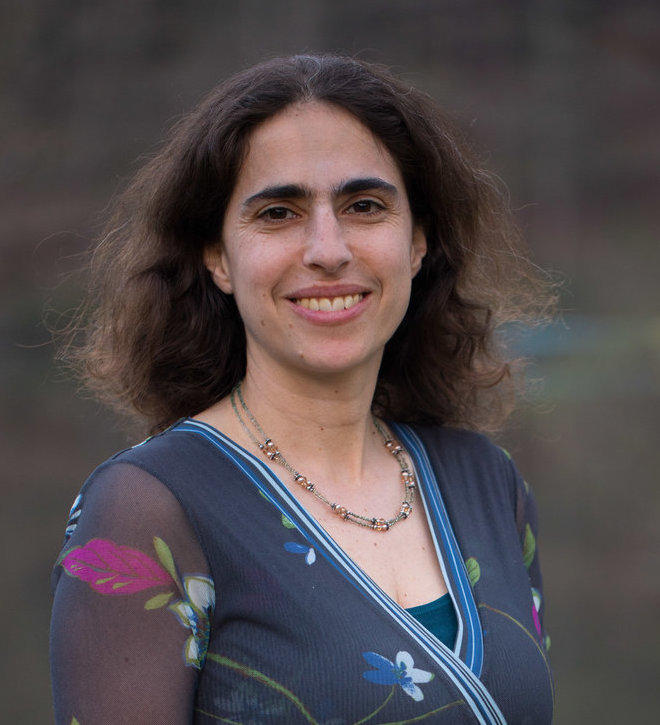On my recent visit to the National Museum of African American History and Culture in Washington, DC, I was moved to tears by one of the readings displayed in the darkened memorial room to those who were transported to America on slave ships from Africa. I learned that the chained slaves would sing songs of lamentation upon their departure and that the captain of one of the ships threatened a woman with flogging “because the mournfulness of her song was too painful for his feelings.” (William Corbett, 1806) In threatening a flogging for singing, this captain was essentially communicating to this woman, “You’re breaking my heart, you’re showing me your humanity, and I can’t allow you to touch my heart this way. Please stop singing, for if my heart opens, I’ll be propelled into turmoil and I may not be able to follow through with the mission for which I was hired. Leave me be.”
This slave ship captain hardened his heart. Like Pharaoh, he hardened his heart and did not let the people go. He placed his self-interest first, constricting his spirit so that he had the capacity to participate in the enslavement of other human beings. Like Pharaoh, we human beings each have the capacity to focus on protecting our self-interest, even at the expense of others, even at the expense of our own souls. We Americans are a country filled with hardened hearts and an obscured ability to see slavery in our midst.
Whereas the 13th Amendment to abolish slavery was passed by Congress in 1865, slavery continues in the United States—shapeshifted into different forms, but still slavery. One of the nefarious forms of slavery today, which is mostly hidden from public view, is mass incarceration. The United States has the highest incarceration rate in the world, with African Americans disproportionately imprisoned and working for pennies an hour. Last year, our minyan in Philadelphia brought Jondhi Harrell, director of The Center for Returning Citizens, to speak about his vision for ending mass incarceration. The room was uncharacteristically quiet and still as we listened to Harrell speak of his prison experience. Prisoners worked long hours and started out making 11 cents an hour, then 22 cents, then 33 cents…it was a big deal if someone got to the level of earning more than a dollar an hour. This was the continuation of slavery in America, funded by our tax dollars, and we had not even been aware.
In this week’s parashah, VaEra, the Divine declares a readiness to free the Children of Israel from slavery in Egypt, and the slow and painful process of redemption begins. Why, after 400 years of slavery, was God finally ready now? The answer is found in Exodus 6:5 (a reprise of Exodus 2:23-25). God says, “I have now heard (shamati) the groaning of the Israelites whom Egypt is enslaving and I have remembered my covenant.” In other words, God’s heart is softened by hearing the laments of the enslaved.
We, too, can soften our hearts by stepping outside of our comfort zones and listening for the stories and laments of people affected by incarceration. It’s important to remember, when listening to those who are suffering, that the greatest gift we bring them is our loving presence. We do not need to know how to fix the problem; rather, by truly hearing and seeing another person, we bring more love and connection into the world, and then together, when the way is clear, we can work towards redemption.
A few years ago, an African American woman in my neighborhood heard about my work on incarceration and reached out to discuss the barriers to staying connected with family members who are incarcerated. It was heartbreaking to learn about how difficult and expensive it is for a parent to continue in their parenting role when a teen or young adult child is incarcerated. Young people from Philadelphia are often placed in prisons hours away. It was only towards the end of our time together that she was ready to quietly share that her son is in prison, and that not many people know because of her concern for his reputation when he gets out. She and her immediate family were suffering the financial drain, fear, stress, and long-term loss of her son alone. I realized at that moment that an important piece of our work in addressing mass incarceration is finding ways to support family members, recognizing that they may not readily make themselves known.
I dream of a day when the ship captain not only listens but laments with the slave woman, when the prison guard laments with the prisoner, when the business owner laments with the grossly underpaid laborer, when policy makers and judges lament with the African American families separated by incarceration, when we each soften our hearts and when white and black people groan together. This is beginning to happen here in America. I believe that God is listening to, and waiting for, our cries.
Rabbi Malkah Binah Klein is a teacher of spiritual practice and community leader in Philadelphia. She led the team that created the Haggadah Supplement “Crying Out Against Mass Incarceration” (2014). Malkah Binah is a member of the Steering Committee of the newly-formed T’ruah Philadelphia.


